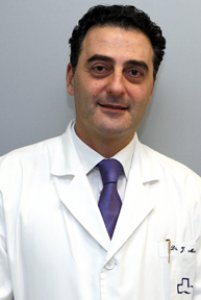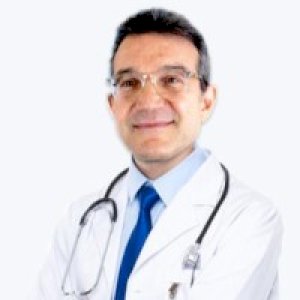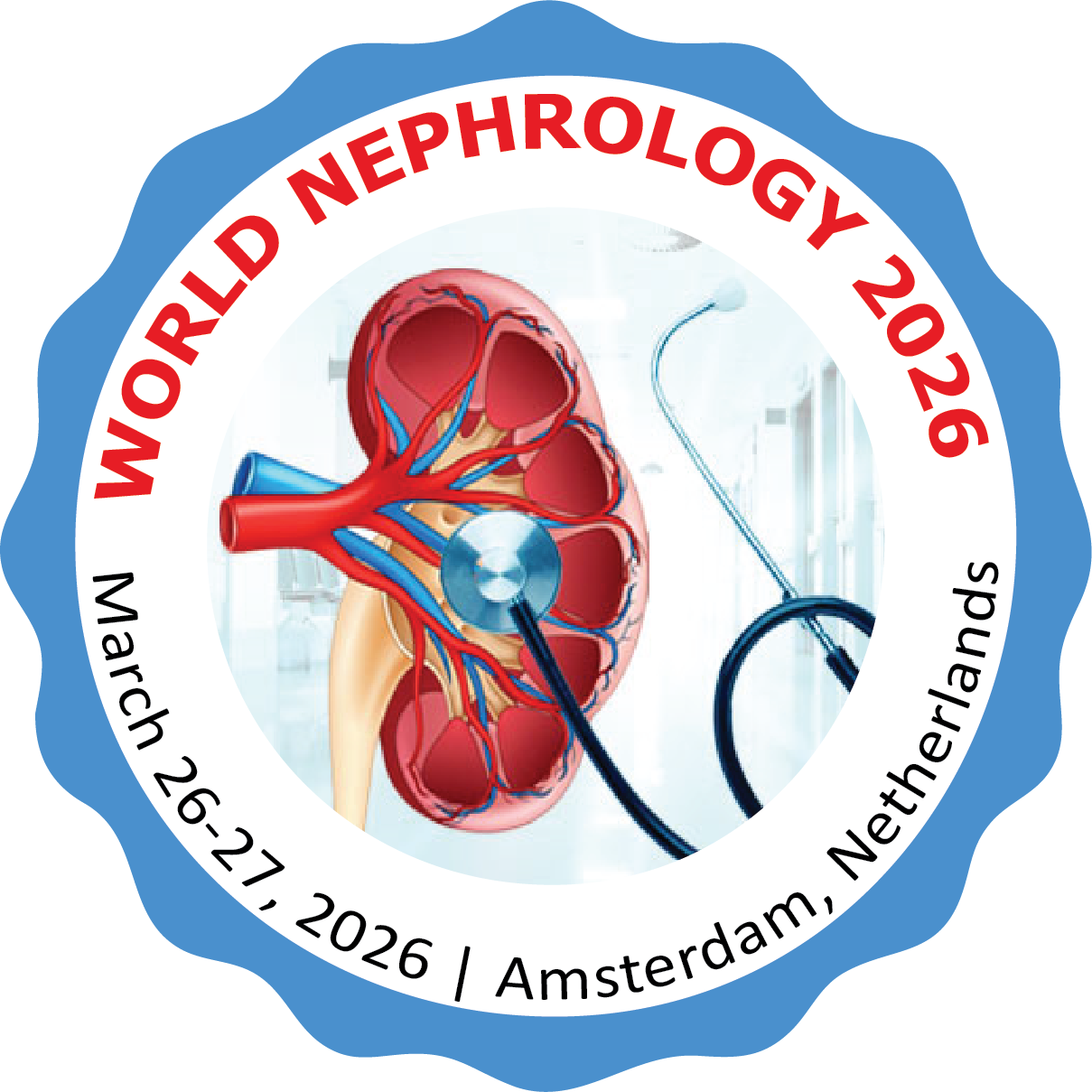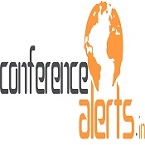About Conference
22nd World Nephrology Conference will increase the most active and latest issues in the field of Nephrology. The meeting will highlight the dialogue around the theme “Innovations in Nephrology: Bridging Science and Patient Care” by connecting the gaps between the academics from across the globe towards educate their research and outcomes by World Nephrology 2026. The highpoints of the conference include Nephrology, Acute Kidney Injury (AKI), Chronic Kidney Disease (CKD), Kidney Transplantation, Dialysis and Renal Care, Paediatric Nephrology, Diabetic Nephropathy and many
The aim of World Nephrology 2026 is to collective Researchers, Academicians and Scientists from the Nephrology communal and to produce an avenue in the path of energetic exchange of information scheduled practical advances, new scientific realizations, and the helpfulness of several show the way platforms just before Nephrology at this occasion.
Target Audience
• Nephrologists
• Renal Practionists
• Kidney coordinators
• Renal Transplantation surgeons
• Physicians
• Scientists
• Nephrology Associations and Societies
• Business Entrepreneurs
• Training Institutes
• Software developing companies
• Manufacturing Medical Devices Companies
• Data Management Companies
• Students
Sessions and Tracks
Chronic Kidney Disease (CKD) remains a significant global health concern, impacting millions worldwide. This session explores current epidemiological data, regional disparities, and risk factor trends across diverse populations. Experts will discuss evidence-based prevention strategies, early detection methods, and the role of lifestyle, genetics, and comorbidities in disease progression. With a focus on global collaboration, this forum aims to enhance awareness, optimize screening programs, and support innovative interventions. Attendees will gain insights into public health policies and clinical frameworks that advance CKD prevention and management, contributing to reduced disease burden and improved patient outcomes globally.
Hypertension significantly impacts kidney health, contributing to chronic kidney disease (CKD) and end-stage renal failure. This conference explores advanced diagnostics, innovative therapies, and preventive strategies targeting hypertensive nephropathy. Engage with global experts, clinicians, and researchers sharing cutting-edge insights and evidence-based practices. Discover the latest developments in renal pathophysiology, blood pressure regulation, and precision medicine. Join us to strengthen collaboration, enhance clinical outcomes, and drive impactful research. This vital discussion will shape the future of nephrology and hypertension management. Elevate your knowledge, network with pioneers, and be part of transformative solutions in kidney health at our international scientific platform.
Glomerular diseases encompass a range of conditions affecting the kidney’s filtering units, often leading to chronic kidney dysfunction. Timely diagnosis and evidence-based interventions are vital to mitigate progression. Advanced therapeutics, including immunomodulators and precision medicine, offer promising outcomes. Innovations in biomarkers and renal imaging enhance diagnostic accuracy. This session explores cutting-edge research, clinical strategies, and translational approaches in managing glomerulopathies. Join nephrology experts to gain insights into evolving treatment paradigms and the future of glomerular care. Stay at the forefront of renal science by engaging with leading professionals driving transformative solutions in kidney health. Ideal for clinicians, researchers, and healthcare professionals.
Explore groundbreaking innovations in kidney transplantation, including precision medicine, immunosuppressive therapy, and organ preservation technologies. This session highlights the latest research, clinical outcomes, and long-term graft survival strategies. Experts will also examine pressing ethical concerns—equity in organ allocation, donor consent, and global disparities. Designed for nephrologists, transplant surgeons, researchers, and bioethicists, this session fosters interdisciplinary dialogue and evidence-based practices. Engage with cutting-edge insights shaping the future of renal care and policy. Join us in redefining standards and addressing critical challenges in modern kidney transplantation.
Pediatric nephrology is witnessing an alarming rise in kidney-related disorders among children. From congenital anomalies to chronic kidney disease, early diagnosis and evidence-based management are crucial. Advances in pediatric renal care emphasize precision medicine, genetic insights, and innovative therapeutics. This session explores critical trends, emerging biomarkers, and multidisciplinary approaches to improve pediatric renal outcomes. Experts will address global disparities, early screening strategies, and long-term care models. Join leading clinicians, researchers, and healthcare innovators as we spotlight the evolving landscape of pediatric nephrology and its impact on global child health. Engage with groundbreaking developments shaping future care.
Explore cutting-edge advancements in geriatric nephrology, focusing on age-related kidney function decline, comorbidities, and innovative therapeutic strategies. This session highlights precision medicine, renal biomarkers, and evidence-based interventions tailored to elderly populations. Engage with global experts on optimizing dialysis, managing polypharmacy, and enhancing quality of life in older adults with chronic kidney disease. Discover clinical guidelines, translational research, and integrative approaches for superior outcomes. Ideal for nephrologists, geriatricians, and researchers, this track offers critical insights into aging kidneys and personalized care pathways. Join us to transform elderly renal care through scientific collaboration and clinical excellence.
Explore cutting-edge insights into Genetic and Rare Kidney Disorders at our international conference. Discover the latest breakthroughs in diagnosis, molecular genetics, and targeted therapies. Engage with global experts on nephropathies, hereditary syndromes, and rare renal pathologies. This session emphasizes precision medicine, translational research, and innovative approaches to patient management. Gain valuable knowledge on emerging biomarkers, gene mutations, and clinical applications in nephrology. Ideal for researchers, clinicians, and healthcare professionals aiming to advance renal genetics and rare disease care. Join us to enhance collaboration, foster innovation, and transform outcomes in this specialized field of kidney research. Stay informed—advance your expertise globally.
Explore the future of Artificial Intelligence in Nephrology, where cutting-edge algorithms transform diagnostics, treatment, and patient monitoring. AI-driven tools enable predictive analytics, enhancing early detection of chronic kidney disease and optimizing dialysis management. Integrating machine learning with clinical data fosters precision medicine, driving innovation in renal care. Discover how AI improves workflow efficiency, supports clinical decision-making, and personalizes nephrology care pathways. Join global experts to discuss the latest advancements, from AI-assisted imaging to data-centric research. This session offers evidence-based insights, bridging technology and nephrology for better outcomes. Be part of the digital revolution shaping next-generation kidney care.
Precision medicine in kidney care leverages advanced genetic, molecular, and phenotypic data to optimize patient treatment strategies. By integrating individualized risk assessments, biomarkers, and cutting-edge diagnostic tools, precision medicine allows for tailored interventions, improving outcomes and reducing adverse effects. In kidney care, this approach enhances disease management, from early detection of diabetic nephropathy to personalized dialysis regimens. Fostering innovation in therapeutic methodologies, it provides healthcare professionals with data-driven insights, enabling more effective and proactive care. The adoption of precision medicine marks a transformative shift, driving personalized patient care and advancing nephrology toward more precise, evidence-based solutions.
Regenerative medicine and stem cell therapies are transforming healthcare by harnessing the body’s natural repair mechanisms. These cutting-edge treatments offer potential solutions for a wide range of chronic conditions, including kidney failure, by promoting tissue regeneration and functional recovery. Stem cell applications provide innovative avenues for personalized therapies, accelerating recovery, and improving patient outcomes. Through rigorous research and clinical trials, regenerative medicine is poised to reshape the future of healthcare, offering hope to patients with previously untreatable conditions. Join leading experts as we explore the latest breakthroughs in stem cell therapies and their impact on medical advancements.
Innovative dialysis modalities are reshaping renal care by enhancing treatment efficiency and patient outcomes. Cutting-edge approaches, such as wearable dialysis devices, home-based therapies, and bioengineered kidneys, offer personalized, sustainable solutions. These advancements aim to reduce treatment burden, improve quality of life, and extend survival rates for patients with end-stage renal disease. Research in nanotechnology, gene therapy, and precision medicine holds promise for optimizing dialysis protocols. As we push the boundaries of renal replacement therapy, collaboration between clinicians, researchers, and industry leaders is essential to driving progress and translating innovations into real-world applications for global patient populations.
Cardio-Renal Syndrome (CRS) represents a complex, bidirectional dysfunction between the heart and kidneys. This condition emerges when acute or chronic heart failure exacerbates renal impairment, or kidney disease accelerates cardiovascular deterioration. CRS involves intricate pathophysiological mechanisms, including neurohormonal activation, inflammation, and fluid retention. Early detection and individualized therapeutic strategies are critical to mitigating adverse outcomes. Advances in biomarker research and multi-disciplinary management approaches are essential for improving patient prognosis. Understanding the interplay between cardiac and renal systems is crucial for optimizing clinical interventions and enhancing patient quality of life in CRS. Join us to explore these emerging insights.
Explore the pivotal role of nutrition and lifestyle in promoting kidney health at the 5th International Conference on Kidney Failure & Renal Care. Delve into the latest evidence-based strategies for managing kidney disease through optimal diet and lifestyle modifications. Leading experts will present cutting-edge research on the impact of nutrition, physical activity, and behavioral changes in preventing progression and improving outcomes for kidney patients. This session offers a comprehensive approach to enhancing renal function, fostering well-being, and empowering individuals with actionable insights for long-term kidney health. Join us to gain valuable knowledge and stay at the forefront of kidney care advancements.
Infection and immunity play critical roles in the pathophysiology of renal diseases, influencing both disease progression and patient outcomes. Renal dysfunction, particularly in conditions like diabetic nephropathy, can impair immune responses, making patients more susceptible to infections. Conversely, persistent infections can exacerbate kidney damage through inflammatory pathways. This session explores the intricate mechanisms linking immune dysregulation with renal pathologies, focusing on innovative diagnostic tools, therapeutic approaches, and the potential for immune modulation in treatment strategies. Participants will gain insights into emerging research aimed at improving patient management and enhancing therapeutic efficacy in kidney disease contexts.
Environmental and Occupational Nephrology explores the intricate relationship between environmental toxins, occupational hazards, and kidney health. This field emphasizes the identification and mitigation of risks associated with pollutants, heavy metals, and chemical exposures, aiming to prevent kidney diseases linked to work environments. Research highlights the impact of industrial exposure, climate change, and urbanization on renal function, guiding public health policies and occupational safety measures. By advancing knowledge on environmental nephrotoxicity and advocating for preventative strategies, professionals strive to reduce the burden of kidney disease and improve long-term renal health outcomes across vulnerable populations.
Mental health is a critical aspect of care for nephrology patients, significantly impacting treatment adherence and quality of life. Chronic kidney disease (CKD) and renal failure often coincide with depression, anxiety, and cognitive decline, exacerbating physical health challenges. Addressing mental health in nephrology care is essential for optimizing patient outcomes. Integrating psychological support into nephrology treatment protocols can enhance patient well-being, reduce hospitalizations, and improve adherence to dialysis and medication regimens. This session will explore evidence-based strategies to effectively manage mental health in nephrology patients, highlighting interdisciplinary approaches for comprehensive, patient-centered care.
Explore the evolving landscape of Nephrology Nursing and Allied Health Roles at our global conference. This focused session highlights advanced practices, collaborative care models, and innovations in managing kidney disorders. Engage with nurse specialists, dietitians, technicians, and multidisciplinary teams driving excellence in renal care. Learn about evidence-based approaches, patient education strategies, and the integration of emerging technologies. Enhance your professional impact through networking, knowledge exchange, and clinical insights. This session is essential for healthcare professionals dedicated to improving outcomes in nephrology through interprofessional collaboration and continuous learning. Join the forefront of renal healthcare advancement at this premier international event.
Patient-Centered Care and Advocacy prioritize individual health outcomes through personalized, respectful, and responsive healthcare strategies. This approach empowers patients, enhances provider communication, and fosters shared decision-making. By aligning clinical practices with patient values, it improves satisfaction, safety, and care quality. Advocacy ensures equitable access and upholds patient rights within complex healthcare systems. Integrating innovative, evidence-based models supports continuous improvement and engagement. As healthcare evolves, patient-centered frameworks remain vital in promoting accountability, transparency, and holistic wellness. This conference spotlight explores leading methodologies, interdisciplinary collaboration, and emerging research driving impactful change in modern patient care delivery and health policy innovation.
Participant Options & Benefits
World Nephrology 2026 offers a range of participant options and benefits designed to enhance your conference experience and maximize your professional development. Participants can choose from the following options:
1. Presenter Registration:
Opportunity to present your research findings through oral or poster presentations.
Feedback from peers and experts in the field.
Publication opportunities in conference proceedings or affiliated journals.
2. Delegate Registration:
Access to all scientific sessions, keynote lectures, and workshops.
Networking opportunities with fellow professionals and experts in the field.
Conference materials, including abstract books and program schedules.
3. Student Registration:
Special rates for students currently enrolled in academic programs.
Access to educational sessions and networking opportunities.
Opportunity to showcase research projects through poster presentations.
4. Industry Registration:
Exhibition space to showcase products, services, and innovations.
Networking opportunities with key opinion leaders and professionals.
Brand visibility among a targeted audience of healthcare professionals.
5. Virtual Attendance:
Access to live-streamed sessions and on-demand recordings.
Participation in interactive sessions and virtual networking events.
Flexibility to attend sessions from anywhere in the world.
Benefits for Participants:
Stay updated on the latest advancements and research findings in nephrology and urology.
Expand your professional network and connect with peers and experts in the field.
Enhance your knowledge and skills through interactive workshops and educational sessions.
Explore career opportunities and collaborations in nephrology and urology.
Earn continuing education credits and enhance your professional credentials.
Join Us at
World Nephrology 2026 whether you are a researcher, clinician, student, or industry professional,World Nephrology 2026 offers a valuable opportunity to learn, network, and collaborate with experts in the field. Register today and be a part of this exciting event in Amsterdam, Netherlands!
Abstract Review Process
Submission and Initial Review:
Submit your abstract through the conference submission portal.
The organizing committee will review all submitted abstracts for relevance to the conference, originality, and scientific quality.
Acceptance and Notification:
Once the review is completed, you will receive an Abstract Acceptance Letter if your submission is accepted.
Accepted abstracts will require the presenting author to register for the conference.
Registration Requirements:
A single registration permits only one person to attend the conference.
If you have co-authors who wish to attend the conference, they need to register and pay independently.
Co-authors will receive a 15% discount on the Non-Presenter’s (Listener’s) Registration Fee.
Certification:
Certificates will be issued to co-authors only upon their registration and payment for the conference.
Discount and Communication:
To avail of the co-author discount, make sure to communicate with the organizing committee prior to registration.
Important Information for Co-Authors:
Each co-author attending the conference must register and pay the registration fee independently.
Co-authors are eligible for a 15% discount on the Non-Presenter’s (Listener’s) Registration Fee.
Ensure prior communication with the organizing committee to facilitate the discount.
Certificates will be provided to registered co-authors.
For further information or assistance, please contact the organizing committee.
Visa Process
Planning to attend the 22nd World Nephrology Conference March 26-27, 2026 Amsterdam, Netherlands? Here's a comprehensive guide to help you navigate the visa process smoothly.
Step-by-Step Guide to the Visa Application Process
Step 1: Registration
The first step in your journey to the 6th International Conference on Kidney Failure & Renal Care is to complete your registration. Once your registration is confirmed, you will receive an official invitation letter. This letter is crucial as it will support your visa application, demonstrating the purpose of your visit to Amsterdam.
Step 2: Determine the Type of Visa
Most international delegates will require a short-stay Schengen visa for France. This visa permits stays of up to 90 days within a 180-day period for tourism, business, or attending conferences.
Step 3: Gather Required Documents
Prepare the necessary documentation for your visa application. Typical requirements include:
- A valid passport (with at least three months validity beyond your intended departure date)
- Completed visa application form
- Official invitation letter from the 22nd World Nephrology Conference
- Travel itinerary (flight reservations)
- Proof of sufficient financial means (bank statements, proof of income)
- Travel insurance covering medical expenses and repatriation for the entire duration of your stay
Step 4: Schedule a Visa Appointment
Contact the French consulate or embassy in your country to schedule an appointment for your visa application submission. Be sure to book this appointment well in advance, as appointment slots can fill up quickly, especially during peak travel seasons.
Step 5: Attend the Visa Interview
On the day of your appointment, arrive at the consulate or embassy with all required documents. During the interview, you may be asked about the purpose of your visit, your plans during your stay, and your ties to your home country to ensure that you intend to return after the congress.
Step 6: Wait for Visa Approval
After your interview, the processing time for a Schengen visa typically ranges from 10 to 15 days. It is advisable to apply at least one month before your planned departure to allow sufficient time for processing.
Step 7: Collect Your Visa
Once your visa is approved, you will be notified to collect your passport with the visa sticker affixed. Double-check the visa details for accuracy and familiarize yourself with any specific entry requirements.
Additional Tips
- Early Preparation: Start your visa application process as early as possible to avoid any last-minute issues.
- Accurate Documentation: Ensure all documents are complete and accurate to prevent delays in processing.
-Travel Insurance: Make sure your travel insurance policy meets Schengen requirements, including coverage for medical emergencies and repatriation.
By following these steps, you can ensure a smooth and hassle-free visa application process. Register now and prepare to join us in Amsterdam, Netherlands for an inspiring and informative gathering of minds at the 22nd World Nephrology Conference!
We look forward to welcoming you to Amsterdam, Netherlands!
Market Analysis
We are honored to cordially invite you to attend our upcoming 22nd World Nephrology Conference which will be held during March 26-27, 2026 Amsterdam, Netherlands. The main theme for the conference is “Innovations in Nephrology: Bridging Science and Patient Care” which gives an opportunity to improve your knowledge and experience by sharing wide ideas, clinical theories and current research developments in the nephrology field.
We welcome you to join us at the Nephrology Meeting 2026, assuring you a better practice with eminent scholars from around the globe World Nephrology 2026 conference is the prominent event which rotates between lands and is organized in relationship with regional nephrology societies with the advanced theme “Innovations in Nephrology: Bridging Science and Patient Care”.
Summary of World Nephrology Conference
World Nephrology deals with study of kidneys as well as its diseases like normal kidney function, kidney problems, the treatment of kidney stone problems and renal replacement therapy, CKD which are common like haemodialysis and kidney transplantation. Kidney function studies: Increased levels of blood urea nitrogen and creatinine are the symbols of acute renal failure. Universal conditions that affect the kidneys such as diabetes and autoimmune disease and systemic problems that occur as a result of kidney problems such as renal osteodystrophy and hypertension are also studied in nephrology. A physician who has undertaken additional training to become an expert in nephrology may call themselves a nephrologists or renal physician.
15th World Nephrology Conference will discuss the latest technologies and therapeutic aspects developed for various kidney diseases which include renal transplantation, dialysis equipment’s and other procedures involved in treatment of Chronic Kidney Diseases and End Stage Renal Diseases. This year’s annual congress highlights the theme “Innovations in Nephrology: Bridging Science and Patient Care ".
World Nephrology 2026 is a remarkable event which brings together a unique and International mix of nephrologists and kidney specialists from leading universities and research institutions making the conference a perfect platform to share experience, foster collaboration across industry and academia, and evaluate emerging technologies across the globe.
According to recent report, nearly 26 million adults apart from young and old aged people are suffering from Chronic Kidney Disease complaints and millions of others are at increased risk. The numbers of Kidney transplantations are seemingly very high and in the year of 2015 alone, there are around 15000 kidney transplantations. Due to the rapid increase for the risk of renal disorders, Nephrology 2026 aims to decrease the incidence rate of kidney disease concluded its international conference on nephrology and cordially invites participants across the globe to discuss and arrive under possible solutions for one of the major critical problems of mankind.
Scope and Importance of Nephrology Research
World Nephrology 2026 conference has been fostering the need to control the impact of permanent renal disease within the public health environment. The lack of a systematized control provided through a measurable program has greatly impacted on the level of hospital expense since they have increased their case-mix risk, family economies deteriorate and health care pays for a higher morbimortality that could be avoided with better surveillance and epidemiological control. World Nephrology 2026 aims to bring together leading Researchers, Academicians, Physicians and Industrialists to exchange and share their experiences and research in order to decrease the incidence rate of kidney disease by new techniques and latest technologies.
This unique opportunity to hear the latest discoveries and network with global experts to discuss improving patient care, Renal Data System trends, and key findings at an open forum for providers to share best practices discussions about reducing hospitalizations, improving volume control, increasing the patient population, nutritional management and sodium modelling, and CKD education. The Organizing committee of Nephrology conference takes the honour of inviting Renowned nephrologists, renal transplantation surgeons, immunologists, Diabeticians, physicians, World-class surgeons, Young researchers, Business delegates and talented student communities working in the field of nephrology to share their research experiences and indulge in interactive discussions at the event.






















